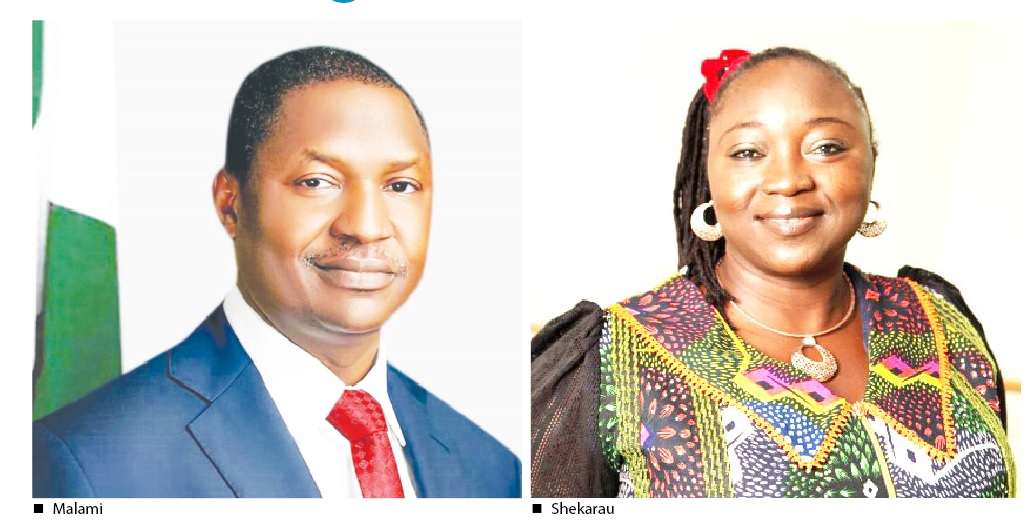The rising cases of sexual and gender-based violence in Nigeria have remained a source of concern in the country due to the negative impact on victims which is the reason why the federal government is working with other stakeholders to set up special courts for them.
Sexual and Gender-based Violence (SGBV) has been found to hinder the attainment of educational and economic potentials of survivors and exacts significant social costs.
- Mpape demolition to continue till December
- PODCAST: Should citizens take up arms to protect themselves?
Experts believe the ravaging effects of COVID-19 further exposed the fault lines of gender equality, with increases in the incidence of domestic violence, especially disregard for women’s sexual and reproductive health and family planning choices during the lockdown.
The establishment of the courts nationally has become necessary as social stigma and other cultural beliefs hinder the smooth prosecution of SGBV cases.
The Ministry of Women Affairs led by Mrs Pauline Tallen in its recent survey said only 11 out of over 3,000, that is 1 per cent of reported cases of SGBV in six states, have been prosecuted. The minister added that of the 3,000 reported cases, 107 were fatal, 742 are still open, while 188 cases were closed and only 11 were prosecuted.
Statistics from the World Health Organisation (WHO) on Violence Against Women (VAW) in 2017 shows that one-in-three women worldwide have experienced intimate partner violence (IPV) in their lifetime. As per the UN, 18 per cent of women and girls aged 15 to 49 years who have ever been in a relationship, experienced physical violence by an intimate partner in 2018.
Furthermore, 38% of all murders of women are committed by male intimate partners. This figure does not even account for all the other forms of VAW i.e. sexual harassment, kidnapping, and abduction.
On Thursday, the Federal Ministry of Justice joined the Women, Law and Development Initiative (WOLDI) Africa in its stakeholders’ consultative meeting in Abuja on the establishment of special courts for SGBV.
Other bodies in attendance were ActionAid, EU-ROLAC/British Council, UNODC, UN Women, First Ladies, and the media.
In her opening remarks, the convener of WOLDI Africa, Hauwa Shekerau, said the meeting was intended to push for advocacy strategies at the highest level to draw attention to the major challenges facing access to justice for the ordinary Nigerian woman.
“The holding of this consultative meeting, which will follow up with a technical working group meeting in days to come, is part of the preparedness for scaling up and support for the establishment and designation of specialized courts for SGBV cases in order to ensure its full success,” she said.
She said since the adoption of the UN Convention on Elimination of All Forms of Discrimination against Women (CEDAW) in 1979 by the UN General Assembly, countries around the world are eliminating stereotypes and discrimination against women.
The Attorney General of the Federation and Minister of Justice, Abubakar Malami (SAN), reiterated the federal government’s commitment to establishing special courts for sexual and gender-based violence matters.
He stated this on Thursday during the opening of a stakeholders’ consultative meeting on the establishment of special courts for SGBV in Nigeria convened by WOLDI Africa in Abuja.
Represented by the Director of Public Prosecutions (DPP) in the ministry, Mohammed Baba Domo, the AGF said the ministry has taken steps to guarantee access to justice for women and eradicate the menace, such as an Inter-ministerial Management Committee, an SGBV Unit in the ministry among others.
“As part of our concern to combat this heinous menace against women and in an effort to combat the menace, the Ministry of Justice took a number of steps including legal, social and psychological responses,” he said.
Justice Maryanne Aninih, who represented the Acting Chief Judge of the FCT High Court, Justice Hussein Baba-Yusuf, said 30 per cent of women and girls aged 15 and 29 have experienced one form of sexual-based violence or the other.
Also speaking, Hadiza Abba, the representative of the Country Rep of the United Nations Office on Drugs and Crime (UNODC), Dr Oliver Stolpe, said the challenging nature of SGBV, especially in African countries due to systemic biases and structural imbalance, calls for development partners to work together to respond to them.
“UNODC is implementing several initiatives around the world on crime prevention and criminal justice through training with police, prosecutors, legal aid lawyers, reviewing legislative initiatives, promoting essential service for survivors, coaching judges to improve the criminal justice delivery,” she said.
In his contribution, Danladi Plank of the European Union and Rule of Law and Anti-corruption (ROLAC) of the British Council, said it is important to learn from other jurisdictions and contextualise same to Nigeria’s special courts to avoid dumping of cases on the court resulting in the same delays witnessed in regular courts.
He assured of the continued efforts to ensure that more states adopt the Violence Against Persons Prohibition (VAPP) Act.
Representative of ActionAid Nigeria, Nkechi Ilochi-Omokede, said the NGO will continue to partner with WOLDI and others to ensure the establishment of the SGBV special courts.
In her remarks, the wife of the governor of Niger State said her office is inundated with several cases of sexual molestation of women, adding that “it is important for all hands to be on deck to eradicate the menace.”

 Join Daily Trust WhatsApp Community For Quick Access To News and Happenings Around You.
Join Daily Trust WhatsApp Community For Quick Access To News and Happenings Around You.


